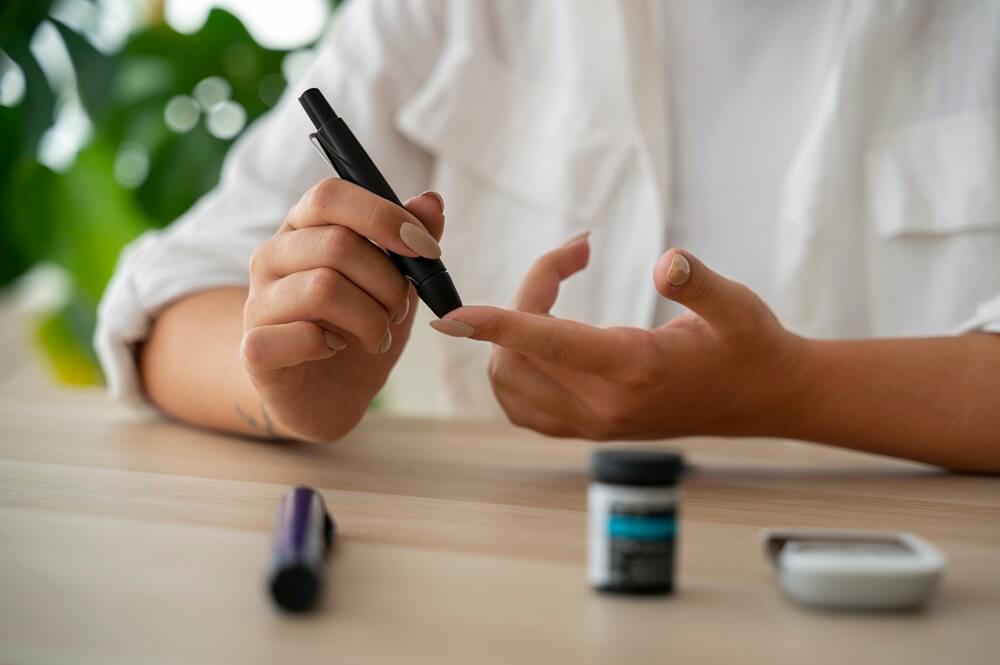
Last Updated on June 27, 2025 by Aaron Barriga
According to a study conducted by the Centers for Disease Control and Prevention, about one in three people with diabetes, who are older than age 40 already, have some signs of diabetic retinopathy. Diabetic retinopathy is the most common cause of vision loss in people with diabetes.
Studies also found that patients with diabetes are also twice as likely to develop Glaucoma and cataracts. This happens because elevated sugar levels in your body lead to a higher amount of blood glucose, thus putting your eye at risk. If you are suffering from diabetes, then you must take a look at the following methods and protect yourself and your vision from the ill-effects of this disease:
Control Your Blood Sugar
A spike in blood sugar can affect the shape of your eye’s lens, causing blurry vision, and once the blood sugar level stabilizes, it goes back to normal. However, you must be vary of such rises in blood sugar levels as it can damage the blood vessels in your eyes. You can keep a check on your blood sugar levels by taking the A1C every 3-4 months to determine how well-controlled your diabetes has been during that period.
Maintain Your Blood Pressure
If you have been diagnosed with diabetes, there is also a high chance of suffering from high blood pressure. High blood pressure is also harmful to your eyes, as a rise in blood pressure around your eyes can also cause blood vessel damage. The combination of high blood pressure and the presence of high blood sugar can seriously affect your vision. So, take all the necessary precautions to keep your blood pressure in check to avoid any long-term damage to your vision.
Change Your Lifestyle
With diabetes comes the need to control your diet and regulate the kind of foods you eat. And considering the risk diabetes puts on your health, a lifestyle change is required. To contain the effects of diabetes on your body and your eyes, follow a nutrient-rich diet regime that can provide you with all the necessary vitamins and supplements to keep your health at its best. And to further the benefits of your diet, be sure to complement it with some simple exercises. This will automatically boost your cardiovascular health, thus ensuring your blood vessels are well-protected.
Schedule Comprehensive Dilated Exams Annually
Scheduling regular comprehensive dilated eye exams is the most important thing you can do to protect your vision against diabetic eye diseases. Since many eye diseases, including diabetic retinopathy, have no visible signs in their early stages, such eye examinations work as important tools for disease prevention and control.
During the exam, your eye doctor will carefully examine the retina and optic nerve of your eye for signs of damage. By carrying out this exercise regularly, your ophthalmologist will be able to immediately identify signs of damage, allowing him to begin treatment accordingly.
Apart from this, you can also make a note of your vision daily. This way if you notice anything out of the ordinary, you can quickly schedule an eye exam and receive the necessary help. If you have recently been diagnosed with diabetes, you will have some vision abnormalities as the medication you are taking affects the glucose levels in your body, thus impacting your vision.
However, if you are facing prolonged bouts of blurred vision, it might be a signal for help. Vision issues faced during your diabetes treatment can be contained by ensuring regular check-ups and eye exams.
If you have been facing any vision-related side effects, call InSight Vision Center Fresno, CA +559-449-5050 to contact our team of professionals and schedule your eye exam today!

Dr. Azhar I. Salahuddin is an ophthalmologist and is fellowship-trained in cornea, external diseases, and refractive surgery. Dr. Salahuddin has been performing cataract surgery for over 19 years and specializes ocular reconstruction, corneal transplantation surgery as well as vision correction through a variety of intraocular lenses. Dr. Salahuddin is board-certified by the American Board of Ophthalmology and was trained at Boston University.

